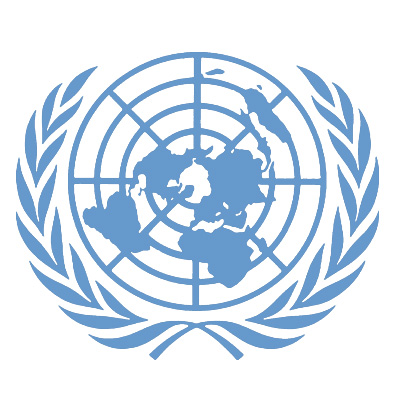 An environmental human rights case brought against the United States has been declared admissible by the Inter-American Commission on Human Rights (IACHR).
An environmental human rights case brought against the United States has been declared admissible by the Inter-American Commission on Human Rights (IACHR).Toxic contaminants spewed by fourteen industrial facilities in and around Mossville, Louisiana, have been polluting the air, water and land there for years. The residents of this poor, mostly African-American community suffer health problems that are known to be caused by the types of chemicals those facilities produce, including cancer and damage to cardiovascular, nervous, respiratory and immune systems. And they suffer from them at higher than average levels. Just one example: Dioxin levels in their blood are three times higher than the national average. No wonder CNN entitled a recent program: Toxic towns: People of Mossville are 'like an experiment.'
After trying to achieve change through state and federal authorities and through the companies themselves, the residents of Mossville turned to international human rights bodies. In 1999, a member of the Mossville community spoke at the UN Commission on Human Rights about what it was like to live in such environmental degradation. Read his powerful statement here.
Environmental racism in the United States had already caught the attention of the UN. When the UN Spec
 ial Rapporteur on racism and racial discrimination visited the United States in 1994, he received information from several organizations about this problem. In the report of his visit he included a section entitled "Racism and the Environment" in which he took note of studies showing that the racial composition of a population "was decisive in the choice of sites" for toxic product depots, toxic waste dumps and hazardous waste facilities. At the UN Commission on Human Rights in 1999, the Mossville spokesperson urged the UN to send the Special Rapporteur on the dumping of toxic waste to visit Mossville and investigate the dumping and storage of toxic waste there.
ial Rapporteur on racism and racial discrimination visited the United States in 1994, he received information from several organizations about this problem. In the report of his visit he included a section entitled "Racism and the Environment" in which he took note of studies showing that the racial composition of a population "was decisive in the choice of sites" for toxic product depots, toxic waste dumps and hazardous waste facilities. At the UN Commission on Human Rights in 1999, the Mossville spokesperson urged the UN to send the Special Rapporteur on the dumping of toxic waste to visit Mossville and investigate the dumping and storage of toxic waste there.But little changed, and the government kept issuing permits to the polluters.
Then, in 2005, the residents of Mossville turned to the Inter-Americ
 an Commission on Human Rights, in a petition brought against the United States on their behalf by lawyers Monique Harden (right) and Nath
an Commission on Human Rights, in a petition brought against the United States on their behalf by lawyers Monique Harden (right) and Nath alie Walker (left) of the New Orleans-based NGO, Environmental Advocates for Human Rights. A second amended petition was filed in 2008 that included petitioners' observations on the government response to their claims.
alie Walker (left) of the New Orleans-based NGO, Environmental Advocates for Human Rights. A second amended petition was filed in 2008 that included petitioners' observations on the government response to their claims.On March 30, 2010, the Inter-American Commission communicated to Environmental Advocates that the petition had been declared admissible. The admissibility decision is available here. The decision to accept the case is significant in several respects.
- First, the Inter-American Commission rejected the government's argument that what the residents of Mossville are being subjected to regarding environmental pollution are not violations of rights protected in the of the American Declaration of the Rights and Duties of Man (sic). The Commission found potential claims regarding the right to equality and freedom from racial discrimination (Article II) and the right to protection of the law for one's private and family life (Article V). As to the latter, the Commission noted European Court of Human Rights jurisprudence that a State's failure to prevent a plant from polluting nearby homes violated the right to privacy. As for the other rights the petitioners argued have been violated, including the rights to life, and to the preservation of one's health, the Commission decided that domestic remedies had not been exhausted.
- Second, the Commission rejected the US argument that racially discriminatory impact does not amount a human rights violation "absent a clear showing of intentional discrimination." Racial discrimination does not have to be intentional to trigger state responsibility. Under international human rights law, policies and practices that have the effect of depriving people of their rights because of their race are human rights violations. This approach recognizes that just because the racially discriminatory treatment one is experiencing is unintentional, that does not diminish the existence or experience of that racially discriminatory treatment.
- Third, the decision goes to the heart of the importance of having an effective remedy when one's rights have been violated. The state has an obligation to take steps to ensure that its permit-issuing decisions do not result in a racially disproportionate burden with respect to the pollution that results, and an obligation to provide an effective remedy for racial discrimination that does result.
 Read the Advocates for Environmental Human Rights press release about the IACHR admissibility decision here.
Read the Advocates for Environmental Human Rights press release about the IACHR admissibility decision here.As for the industries operating in and around Mossville, in 2007 the Business and Human Rights Resource Centre asked companies if they wished to respond to reports of environmental health problems in Mossville; the reports and the companies' responses are shared here.



